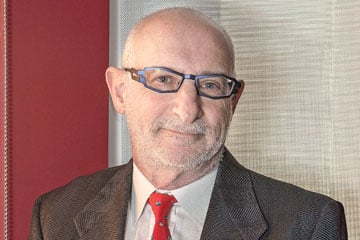
LawPRO has missed out on an $83-million windfall after a judge denied the legal indemnity insurer’s claim for tax-exempt status.

LawPRO has missed out on an $83-million windfall after a judge denied the legal indemnity insurer’s claim for tax-exempt status.
In Lawyers’ Professional Indemnity Company v. The Queen, Tax Court of Canada Justice Steven D’Arcy was asked to rule on whether LawPRO, as a wholly owned subsidiary of the Law Society of Ontario, was entitled to the exemption under paragraph 149 (1) (d.5) of the Income Tax Act for entities owned by a “public body performing a function of government in Canada.”
The judge found that the law society was indeed a “public body,” but that it “does not perform a function of government in Canada” and, as a result, denied LawPRO’s entitlement to the exemption.
In its most recent annual report, LawPRO explained that it began filing as a tax-exempt organization in 2014 following 2013 amendments to the Income Tax Act that extended the definition of the status in paragraph 149 (1) (d.5). Previously only available to certain municipally owned subsidiaries, the changes made it possible for similar subsidiaries of “public bodies performing a function of government in Canada” to claim the exemption.
“After completing a detailed and careful evaluation of the applicability of the new provisions,” LawPRO believed it was “probable that a refund claim would be successful,” according to its annual report.
The legislative changes were made retroactive to tax years after 2000, and LawPRO’s report said it hoped not only to capitalize on ongoing future income tax savings but also to take advantage of a full retrospective exemption. That could have meant a refund for the $83,624,761 the company paid in income tax between 2001 and 2017. But it wasn’t to be. According to D’Arcy’s judgment, the Canada Revenue Agency assessed LawPRO’s taxable income at $24.6 million for 2013 and $26.6 million in 2014. While the insurer hoped to see both amounts slashed to zero on appeal, instead, all LawPRO got was a $45,000 reduction for its assessed income in 2013 and an $18,520 cut for 2014 after the CRA agreed to the deductions for charitable gifts.
“All I can say at this time is that we are reviewing Justice D’Arcy’s decision and considering whether we will appeal it,” said LawPRO CEO Dan Pinnington in a statement to Law Times.
Toronto lawyer Robert Winters, a partner at tax law boutique Morris Kepes Winters LLP, says he expects the insurer to take another kick at the can by appealing, pointing out that D’Arcy appeared to side with LawPRO on most of the disputed issues until the critical final determination of whether the law society performs a function of government.
“Clearly, there will be an appeal,” he says.
Toronto tax lawyer David Rotfleisch, founder of Rotfleisch & Samulovitch PC, says the decision was a very technical one, and he’s not surprised by the lack of case law in that area.
“It’s not that common a scenario,” he says.
Before D’Arcy, a lawyer for the federal government argued that the undefined term “public body” in the Income Tax Act should be limited to entities similar to municipal bodies.
But the judge took a broader view, importing a three-part test previously developed by the Federal Court of Appeal for determining whether a body is a “public authority” under the Trade-marks Act.
D’Arcy concluded that the LSO met all three elements of the test, which requires an entity to demonstrate that it has a duty to the public, is subject to a significant degree of government control and that any profits generated are for public rather than private benefit.
However, the judge was less persuaded by LawPRO’s contention that the LSO performs a function of government.
The insurer argued that the law society’s regulatory responsibilities fit the bill, since they were delegated by legislation.
Instead, he said it was the Government of Ontario that performed a function of government by deciding which bodies regulate specific professions.